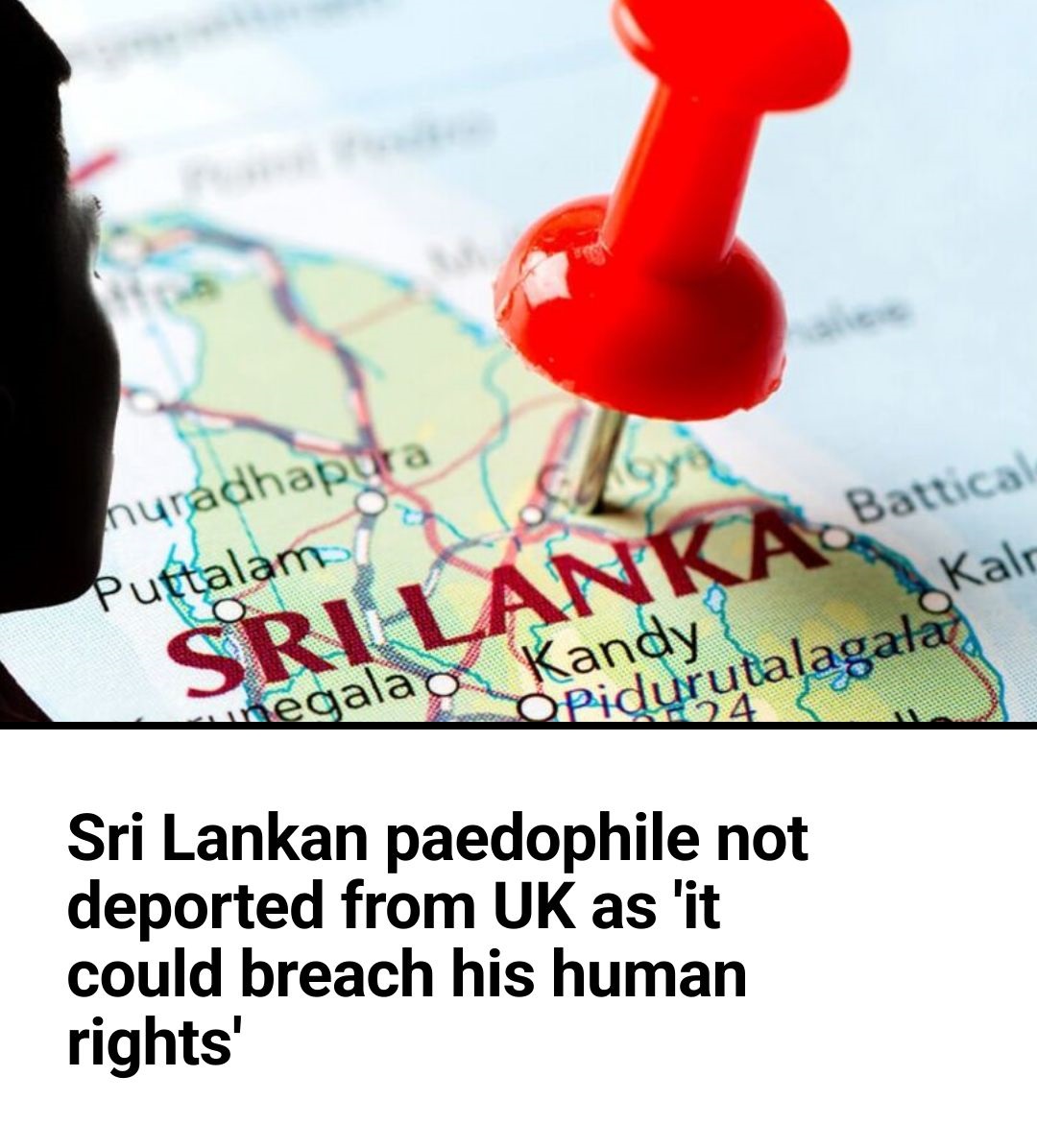A gay Sri Lankan sex offender has remained in the UK for 14 years after he molested three teenage boys – because judges can’t agree whether deporting him would breach his human rights.
The convicted paedophile – whose youngest victim was just 13 – has been able to stay in Britain since 2011 due to his lengthy bid for asylum.
In 2012, when he was jailed and branded a ‘danger to the community’, he sought asylum in Britain by claiming his life would be at risk if he were to return to Sri Lanka because he is gay.
Since then, there have been repeated hearings at Britain’s top courts as senior judges debate whether deporting the 50-year-old would breach his human rights.
The sex predator has remained in the UK the entire time, and his lengthy case is still not resolved.

An aerial view of the city of Jaffna, where the sex offender came from in 2008. (Image: Getty)
The decision regarding his deportation status appears to have been in constant flux, and at least four hearings at Britain’s top courts have been held to try to settle it.
In the latest hearing, the Court of Appeal was told that the Sri Lankan, who is of Tamil ethnicity and was born in Jaffna, first came to the UK in 2008 on a student visa to study a 3-year degree in Fashion Design and Marketing at London Reading College.
In 2011, the man – named only as ‘PG’ – was arrested for abusing three boys and a year later he was convicted of five counts of sexual activity with a child and one attempted rape.
A judgement said: “The offences involved three different boys who were aged between 13-15, who PG met on a bus and thereafter followed on foot, on three separate occasions.
“The sexual offending included PG touching the 13-year-old boy’s genitals outside his clothing, pulling the 14-year-old boy’s trousers down and touching his penis, before PG performed oral sex on him and attempted to insert his penis into the boy’s anus.”
PG was jailed for four years in February 2012 and was ‘notified of his liability to be deported as a foreign criminal’.
Seeking asylum, PG said in 2012 ‘that he was a gay man and that his life would be at risk if he were to be deported to Sri Lanka’.
In Sri Lanka, homosexuality is illegal.
A 2020 human rights report found people who are prosecuted are subjected to ‘forced anal exams’, face ‘inhuman’ treatment, and that police officers have sexually assaulted the LGBT community.
In Britain in June 2012, while Conservative David Cameron was Prime Minister, a ‘decision was made not to pursue PG’s deportation at that time’.
A year later he was told ‘in line with Home Office policy’ he had been given ‘discretion in his favour’ and was granted limited leave to remain.
He was told that it was “because it is accepted that as a homosexual man, it would be unreasonable to expect you to live discreetly in Sri Lanka to avoid inhuman or degrading treatment”.
It was heard the man has been threatened by his wife’s family – who live in Sri Lanka.
In October 2013, he was told he had six months’ discretionary leave, but when that was up in April 2014, his lawyers applied for further leave to remain.
In 2017, the Home Office told PG that he was to be deported but that he could appeal the decision.
Since then, there have been several appeal hearings at British courts, with judges reaching different conclusions about whether deporting him is lawful.
In 2017, a First-Tier Tribunal judge found it was ‘not safe’ for PG to return.
In 2018, the Sri Lankan was convicted at Dorset Magistrates’ Court for breaching a Sexual Harm Prevention Order that was imposed on him following his earlier offences.
In 2020, the Home Office’s appeal against the 2017 decision was allowed, and a new hearing was set, which took place in 2021.
In 2023, another judge found in favour of PG and said deporting him would violate his human rights.
In 2024, the Home Office were allowed to appeal that decision.
Now, at the latest Court of Appeal hearing, overseen by Lord Justice Jeremy Baker, it was ruled that a new deportation hearing must occur.
Lord Justice Baker said the 2023 judge – Upper Tribunal Judge Perkins – had not provided ‘any reasoned analysis’ as to why PG could not return to Sri Lanka.
Lord Justice Baker said: “I regret to observe that, beyond the rehearsal of the evidence which was provided to him, the judge does not appear to have provided any reasoned analysis of the evidence which he considered may have justified such a conclusion…
“I consider that there was insufficient analysis of the evidence to enable the judge to be in a position to be able to determine whether there were sufficiently strong grounds for not following the guidance.
“Moreover, I consider that insufficient reasons were provided as to whether PG, as a gay man, would face persecution on return to Sri Lanka either as a result of the treatment of gay men in that country per se, or in combination with his personal circumstances.”
Lord Justice Baker said more consideration needs to be given to the current state of the law in Sri Lanka surrounding the prosecution of gay men.
A new hearing will take place at the Upper Tribunal in the future.
